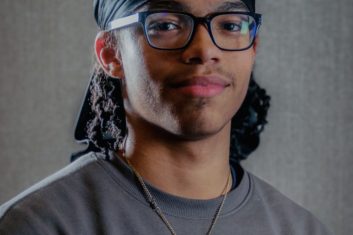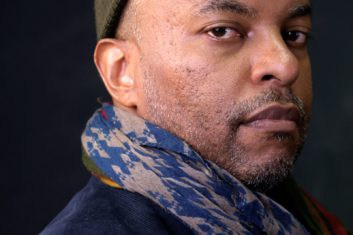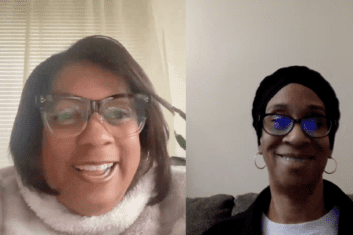Autumn Tilson has been with Community-Word Project since 2012. She began as the Teaching Artist Project (TAP) Administrator and is currently the Program Manager of School Partnerships as well as the Office Manager. CWP staff members sat down with her to discuss everything from Sondheim to access to the arts.
When did you first know you were an artist?
I’ve been singing as long as I’ve been talking. I learned Do Re Me as a toddler and didn’t know it was from a musical until I was in elementary school. The arts were always a part of my life. My parents exposed my sister and I to performances and visual arts of all kinds throughout our childhoods. My first public performance was Persephone, a children’s opera, at the age of 4. I played a sunflower and sang a trio with a tutu around my face. Even though I was very shy, I took to the performing arts immediately. I took up ballet at 3, the piano at 6, the clarinet at 9, and jazz and tap dance at 10. I sang in two church choirs or churches my friends’ families attended. I took every theatre class I could find as well as participating in Art in the Park every summer along with a few painting and paper making classes during the year.
At 11, I discovered community theatre and from there it was a straight course. We had new neighbors who had a daughter a year older than I was. One day she knocked on my door and asked if I wanted to go with her to an audition for a musical that the city was doing. I jumped in their minivan and never looked back! I got involved with three different theatre groups and started doing upwards of 6 shows a year, often two at a time. My freshman year of high school, the city opened an arts magnet high school, which I got into to study theatre my sophomore year. My senior year, I interned with the City of Savannah Leisure Services, Department of Cultural Affairs. I helped with their visual arts and theatre classes and productions as well as touring around Savannah and the surrounding cities’ schools and community centers with an educational show about the dangers of smoking. It never occurred to me when applying to colleges to look for programs other than theatre and music. Luckily, my parents have always been very supportive. They told me I could major in Theatre as long as I also majored in Music. Sound advice as my music degree is what ended up getting me into graduate school.
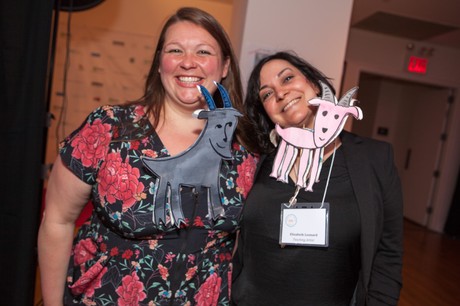
What artwork or artist is your greatest inspiration?
I always loved the complexity of Sondheim’s scores. To sing a Sondheim show you have to know your theory backwards and forwards, then throw it out the window all the while remembering to count! But Jeanine Tesori’s music speaks to me on a very personal level. Her characters, and her music, are incredibly complex and don’t follow any of the rules. What sounds simple is hugely rich and complicated and layered. Her characters are so human and flawed and therefore very little of her music resolves because very little in life resolves neatly. In terms of playwrights, Brian Friel, an Irish playwright best known for Dancing at Lunasa (but do yourself a favor and read Translations), is one of my favorites. His characters leap off the page fully formed, human and imperfect. For performers, there’s something to be said about someone who gives 120% of themselves to every single role and performance. Audra McDonald is special. You can’t pinpoint what it is, but you know when you watch her that your average actor or singer can’t do or bring what she does to each word and note. But it makes you want to try.
What are you most proud of in your art-making?
This is tough! I don’t know there there’s any one thing that I’m most proud of. I love that moment when you’re moments away from an audience and nothing has come together yet and suddenly – with no rhyme or reason – things start to fit together and work. It’s both terrifying and satisfying! I used to see it a lot when I toured. We would drive into a town on Sunday night and hold auditions on Monday morning, casting 50-100 kids. You typically had three or four days to teach them the entire show. Everyone always panicked but on Friday, something would click and the show would work. And the kids were always so proud of themselves for the amazing feat they had achieved so quickly.
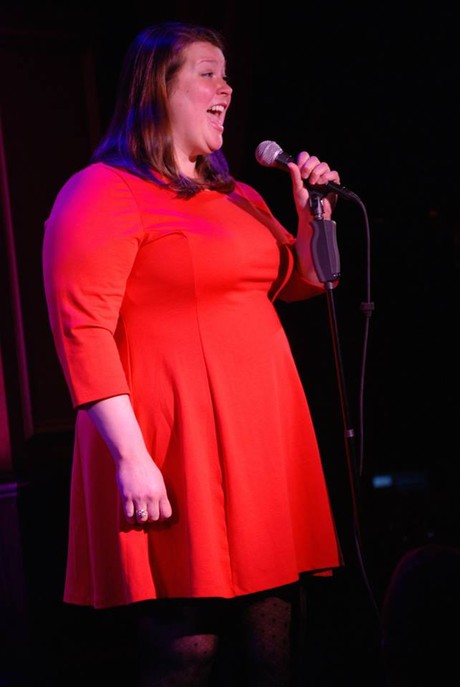

What is your favorite thing about your job?
My favorite thing about my job is popping into the classrooms. It’s amazing to see the magic at work. I get to experience a little slice of their world and be a part of their journey for a few moments.
Why is this work important?
I don’t know where my life would be if I had not had the exposure to the arts that I did as a child. I was very lucky to grow up in an area that had the resources to bring in arts programming for students and that my parents were able to seek out opportunities for me outside of school. Many of our students are not as lucky. The arts reach students on a completely different level than academics or sports. It is an access point and a lifeline for so many people who otherwise might be floundering. These days, children are given so few opportunities to play and be creative and it negatively impacts the way their brains think and process information as well as their ability to be empathetic and think outside the box. Even just a small exposure to a new way of thinking about something and an invitation to be creative can do wonders for a child’s ability to access their creativity and voice.
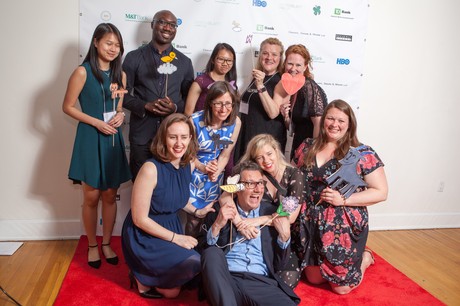

Why Community-Word Project?
I think that CWP’s approach to education, through the lens of art-making and identity (both communal and individual), is so unique. Many organizations go into school with cookie cutter programs that are very product based. No two classrooms are cookie cutter, so programs that go into these classrooms should not be either. These programs, while they might lend themselves to polished end products, don’t touch the students on an individual level as deeply as the processed-based programs of CWP. When the students are challenged to be a part of the product at every stage form the very inception to the end performance and publication, they get a greater understanding and appreciation of the process of the art-making and have a greater investment in the end product. Plus, it is rare to find a program that actively invites students to share their unique voice with the world.
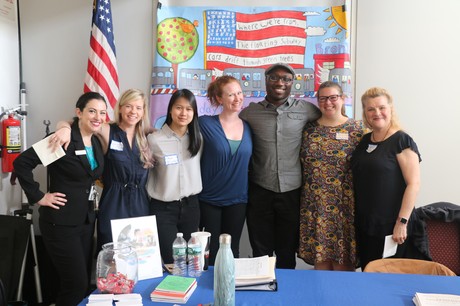

What are you currently working on?
I start rehearsals at the beginning of October for a handful of concerts with Essential Voices USA, including the New York Pops Holiday Concert at Carnegie Hall and a recording in Washington DC. I am also working on a project with a friend from grad school. We are working on putting together a cabaret of music and stories where the proceeds will go towards the ACLU.

